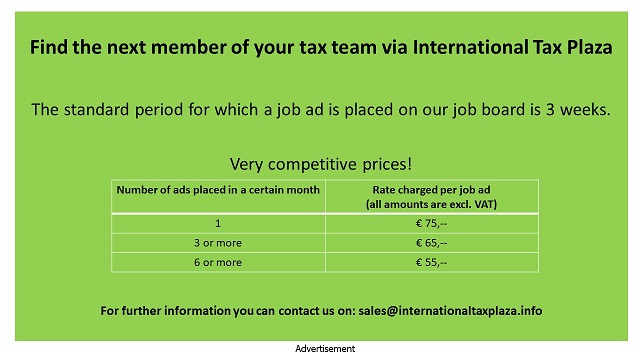On June 8, 2023 the Court of Justice of the European Union (CJEU) issued a press release announcing that in Case C-457/21 P, Commission versus Amazon.com and Others, Advocate General Kokott concluded that the European Commission erred in deciding that Luxembourg had granted unauthorised state aid to Amazon in the form of tax advantages. Unfortunately at the time we were writing this article the full text of the opinion of the Advocate General was not yet available at the website of the CJEU.
According to the press release the Advocate General is of the opinion that the reference system relied on by the European Commission in order to review whether there was a selective advantage, namely the OECD Transfer Pricing Guidelines rather than Luxembourg law, was incorrect.
By decision of October 4, 2017 the Commission found that Luxembourg had granted Amazon unauthorised state aid via a tax ruling made in 2003.
In that tax ruling, the Luxembourg tax authorities set out their position regarding the appropriate amount of a royalty between two Luxembourg subsidiaries of the Amazon group. The amount of that royalty has an effect on the corporate income tax liability of Amazon EU Sàrl, established in Luxembourg. The higher the royalty is set, the less corporate income tax is therefore payable in Luxembourg.
In order to determine the appropriate royalty, Luxembourg and Amazon.com relied on a particular mutually agreed method. The Commission regarded that transfer pricing agreement as State aid since, in the Commission’s view, it was not consistent with the arm’s length principles of the OECD. The Commission made its own calculation to determine the appropriate amount of the royalty in accordance with a different method and arrived at a lower royalty. Since that would have resulted in a higher corporate income tax burden, the tax ruling was considered to have granted a selective advantage to the subsidiary paying the royalty.
Luxembourg and Amazon brought proceedings before the General Court seeking the annulment of that decision. The General Court annulled that decision of the Commission by its judgment of 12 May 2021. The General Court could not, on the basis of the OECD Guidelines find that the determination of transfer pricing was erroneous. The Commission had not demonstrated that the tax burden had been artificially reduced as a result of over-pricing the royalty. Whether the arm’s length principles of the OECD could actually be the correct reference system for a review of State aid was not the subject of dispute before the General Court.

The Commission brought an appeal before the Court of Justice against that judgment of the General Court.
In her Opinion of today’s date, Advocate General Juliane Kokott proposes that the Commission’s appeal be dismissed and consequently that the General Court’s judgment, which annulled the Commission decision, be upheld as to the result if not as to the reasoning.
As the question of the existence of a selective advantage is inextricably linked with the question whether the reference system was determined correctly, the latter question falls to be examined in the present appeal, even though Luxembourg and Amazon did not raise it before the General Court and the General Court did not examine it. In that regard, the Court of Justice recently held in its judgment in Fiat Chrysler that when examining whether there is a selective advantage and when establishing the tax burden that should normally be borne by an undertaking, parameters and rules external to the national tax system at issue cannot be taken into account, unless that national tax system makes explicit reference to them.
However, the Commission based its review of the appropriate amount of the royalty exclusively on the OECD Transfer Pricing Guidelines, although Luxembourg law at the time when the tax ruling was issued did not refer to those guidelines. The Commission therefore incorrectly failed to take the Luxembourg national law as the relevant reference system for its review of a selective advantage. On the basis of that error, all the subsequent considerations in the Commission decision are vitiated by an error of law. The General Court was therefore correct in annulling the Commission decision at issue – albeit on different grounds – in the absence of a demonstrated selective advantage. The Court of Justice is not required to rule on whether those other grounds – which the Commission expressly challenges in its appeal – are tenable.
Even if the Court of Justice were to consider itself bound by the choice of the incorrect reference system, the Commission’s argument would be unfounded. In the view of the Advocate General, the method selected in the Luxembourg tax ruling also when the OECD Transfer Pricing Guidelines were applied to it would not have been manifestly the incorrect method, nor was it manifestly misapplied. In view of the fiscal autonomy of Member States, however, only tax rulings which are manifestly erroneous in favour of the taxpayer could however constitute a selective advantage. For that reason the Commission was also unable to demonstrate in its decision that the tax ruling had conferred a selective advantage on Amazon.
Copyright – internationaltaxplaza.info
Follow International Tax Plaza on Twitter (@IntTaxPlaza)